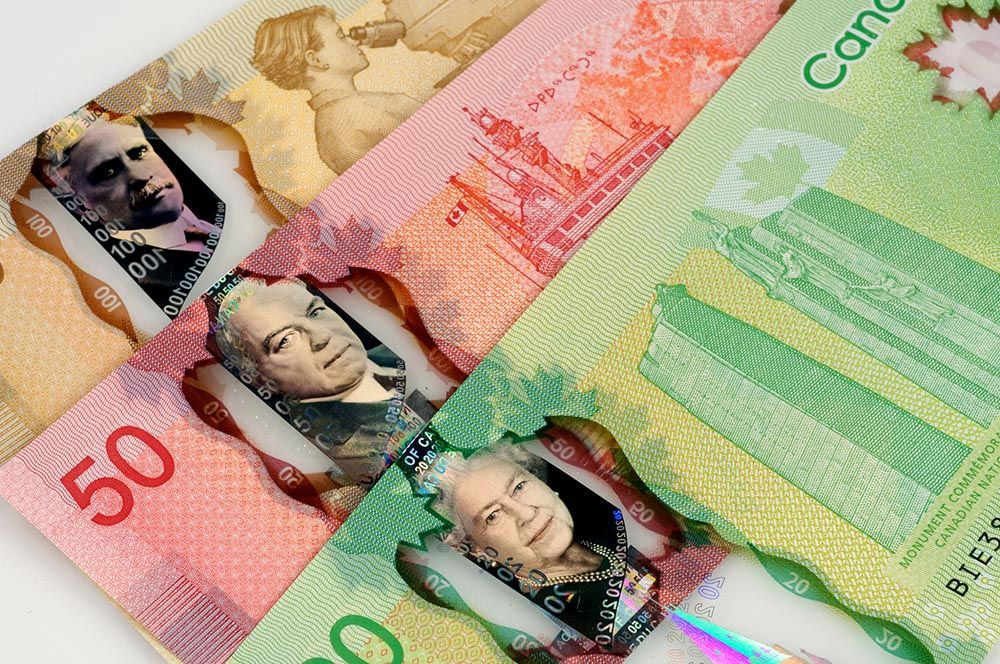GBP/CAD 5-Day Forecast: USD, Oil Rebound Halts Recovery

Image © Adobe Stock
The Pound to Canadian Dollar exchange rate's (GBPCAD) short-term rebound has been halted by a flareup in geopolitical tensions, although it is too soon to say the pair is about to return to lows around 1.6350.
The GBPCAD has staged a recovery over the past two weeks from 1.6350 to close out the previous week at 1.6712 having made an impressive recovery following Friday's stronger-than-expected Canadian labour market data.
But the recovery is tested Monday by a spike in oil prices following the weekend terrorist attacks conducted by Hamas in Isreal.
The attacks raise the prospect of Iran - a longtime sponsor of Hamas - coming under pressure from the West, or even via retaliatory attacks by Israel.
Given Iran's importance as an oil exporter, it is little surprise that oil prices have risen amidst concerns for the outlook of supply.
Higher oil prices in turn benefit oil producers, such as Canada. But the Dollar - a natural safe haven - is also higher amidst these rising oil prices and soft stock markets.
The Canadian Dollar also has a high correlation with the U.S. Dollar and is therefore benefiting against the likes of the Pound and Euro.
"A persistently strong U.S. economy should keep CAD supported via bilateral trade channels. External factors, in particular oil prices, remain supportive, and continued OPEC cuts into yearend, which should provide a tailwind for CAD," says a recent note from Citi, citing the linkages between the CAD, USD and oil prices.
Global events are therefore exerting influence over CAD and have helped put a lid on the recent GBPCAD recovery and much will depend on how long fears remain elevated.
A number of economists and market analysts we follow say the impact of the weekend events should be limited and they expect the market to revert to previous settings.
"Historically, markets have rebounded from geopolitical crises," says Nigel Green, CEO of deVere Group. "I would urge investors to avoid knee-jerk reactions to the oil price surge."
WTI oil prices plunged 9.0% last week and despite the conflict in the Middle East are only up 2.72% at the time of writing Monday; they had been as much as 5.0% higher earlier in the day.
Indeed, the initial spike has faded somewhat and it appears crude has a mountain to climb if it is to reverse the declines that are linked to concerns for the outlook of global growth.
"We will closely monitor the situation but believe that this is unlikely a tectonic shift in geopolitics bearing lasting impact," says Norbert Rücker, Head of Economics & Next Generation Research at Julius Baer. GBPCAD can look to restart a short-term rebound if fears subside.
Above: GBPCAD at daily intervals with the 200-day moving average shown. Exchange rate alerts: set up a daily rate alert email to track your exchange rate OR set an alert for when your ideal exchange rate is triggered ➡ find out more.
Pound Sterling Live has been warning through late September that an upside correction in GBPCAD was required to correct the market from heavily oversold conditions, and this has duly transpired.
The recovery now takes the Pound-Canadian Dollar rate back up to the 200-day moving average, a line on the chart that could provide notable resistance.
The 200-day MA is expected to be surrounded by market orders as traders anticipate this is where the rebound would fade, thereby capping the advance.
Should the line be broken then the rebound could regain momentum and we would call an end to the recent downturn. A simple rule we follow is that a market enters a downtrend once below the 200-day MA (which happened to GBPCAD last month) and enters an uptrend once it has successfully broken above.
Taken together, this means the GBPCAD remains in a downtrend but is subject to a counter-trend rebalancing that can still extend a little higher over the coming days before it resumes weakness.

